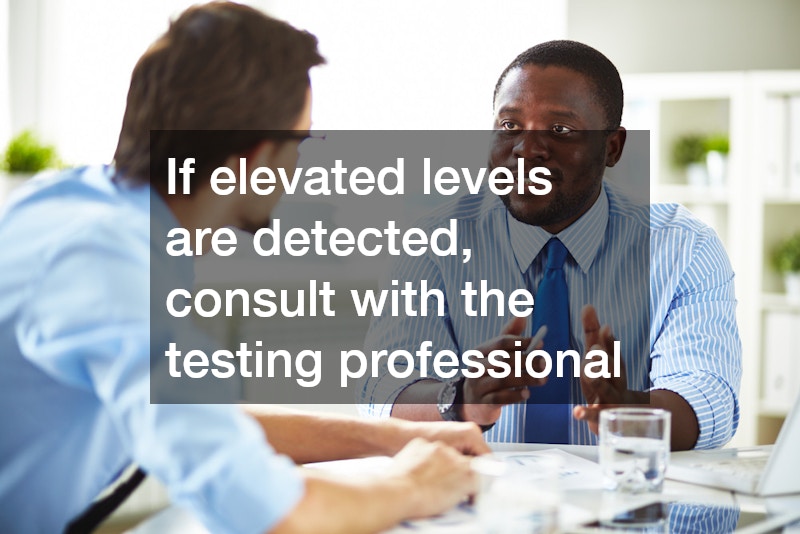
Radon is a naturally occurring radioactive gas that can pose serious health risks if it accumulates at high levels indoors. Hiring a professional radon testing service is crucial in assessing and mitigating these risks in your home or workplace. This article will guide you through the key considerations when selecting a radon testing service.
What Qualifications Should a Radon Tester Have?
Certification and Licensing
Radon testers must be certified by recognized bodies such as the National Radon Proficiency Program (NRPP) or the National Radon Safety Board (NRSB). Certification ensures that the testers have received proper training and adhere to industry standards. Licensing, if required in your state, further assures that they are operating legally.
Without the proper certification, a tester may possess inadequate expertise. This lack of certification could potentially lead to inaccurate results, posing continued health risks. Therefore, it is vital to verify these credentials before hiring a radon testing service provider.
Hiring a certified professional helps ensure that the testing is done accurately and reliably. It also means they are more likely to be informed of the latest methodologies and regulations. Certified testers are equipped to provide you with accurate readings and effective mitigation strategies.
Experience and Expertise
Experience in the field of radon testing and mitigation is crucial for a service provider. A deep understanding of local radon levels and regulations can significantly enhance the accuracy of testing and mitigation efforts. An experienced tester is better equipped to handle any unforeseen challenges that may arise during the process.
In addition to technical knowledge, expertise involves the ability to interpret and translate the results into actionable solutions. Hiring someone with a proven track record means they have likely encountered a diverse range of scenarios and perfected their strategy over time. This expertise can be invaluable in ensuring your property’s safety.
Ask about their previous jobs and any specific challenges they have faced. This will help you gauge their problem-solving abilities and practical knowledge. An experienced tester is more likely to deliver efficient and effective services tailored to your specific needs.
References and Reviews
Checking past client references is a crucial aspect of the hiring process. References provide firsthand insights into the quality of service the radon testing company offers. Contacting previous clients can help you understand what to expect in terms of professionalism and reliability.
Online reviews are another excellent source of unbiased information. They often reflect the general satisfaction of clients and can highlight potential red flags. Pay attention to both positive and negative feedback when evaluating a service provider.
Inquire about multiple reviewers’ experiences with the tester’s customer service, accuracy, and timeliness. An overwhelming number of positive reviews can boost your confidence in the hiring decision. However, a pattern of negative reviews may suggest looking elsewhere for a dependable service.
How Is Radon Testing Conducted?
Types of Radon Tests
Radon testing methods are designed to accommodate different needs, whether it’s a quick assessment or long-term monitoring. Short-term tests, ranging from 2 to 90 days, provide a quick snapshot of radon levels. Long-term tests, spanning more than 90 days, offer a more comprehensive view of daily fluctuations.
Continuous radon testing utilizes electronic monitors to provide real-time radon levels, ideal for ongoing monitoring. Each type of test has its specific use case, and the choice depends on your particular needs and timeline. Consulting with a professional can help you determine which type of testing is most suitable for your circumstances.
Understanding these testing options allows for a more informed decision-making process. Each method has its benefits and limitations, and knowing them can help you weigh your options effectively. Whether you choose short-term, long-term, or continuous monitoring, it’s crucial to select the right type that suits your situation best.
Testing Procedures
Conducting a radon test requires specific preparations to ensure accurate results. This often includes closing windows and doors for 12 hours before and during the test to prevent external factors from skewing results. Professional testers will provide these guidelines to ensure the conditions are optimal for testing.
The actual testing process involves placing radon monitors in the lowest level of the home that is regularly occupied. This location typically represents the highest potential for radon accumulation. The tester will then leave the monitors to collect data over a predetermined period.
Once the testing period concludes, the monitors are retrieved, and the data is analyzed. This analysis is crucial in identifying whether the radon levels are within safe limits or if mitigation efforts are needed. Professional testers will offer a detailed explanation of the results and discuss any necessary next steps.
Interpreting Test Results
Understanding radon test results is pivotal in deciding what actions need to be taken. Test results are usually given in picocuries per liter (pCi/L), a measure of radioactivity. The Environmental Protection Agency (EPA) recommends action if radon levels exceed 4.0 pCi/L.
If elevated levels are detected, it is crucial to consult with the testing professional to determine an appropriate mitigation plan. This might include improved ventilation or the installation of radon mitigation systems. A knowledgeable radon tester will guide you through these options and recommend the best course of action for your specific situation.
Ensuring that your radon testing service is qualified and knowledgeable is fundamental in protecting your health. With the right service, you can confidently identify and address radon issues within your property. Familiarizing yourself with testing methods and outcomes will equip you with the necessary information to make informed decisions moving forward.
.






